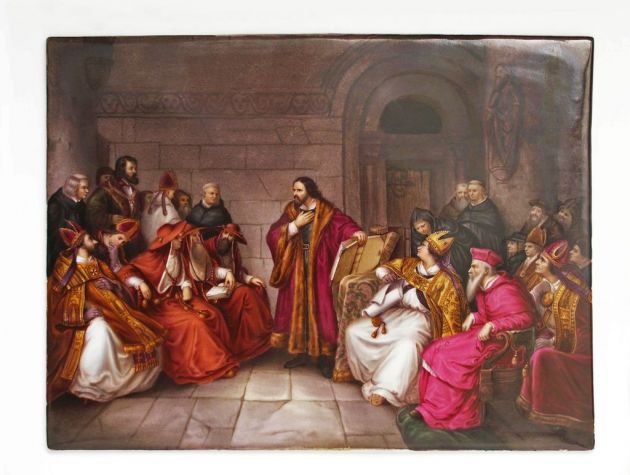Czech reformer Jan Hus hailed on 600th anniversary of his death

Czech Christian reformer, priest and philosopher Jan Hus of the 15th century has been paid a special tribute by a Lutheran archbishop who is the president for Europe in the World Council of Churches.
Archbishop Emeritus Anders Wejryd, the WCC president for Europe, said Hus was one of the most notable personalities in European history as well as being a predecessor of the Protestant movement.
"Jan Hus is rightly seen as a founder of his nation. This distinction arises from his ability to discern between his temporal allegiance to the country of his birth and his eternal calling to the kingdom of God.
"Church and State were separate realms for Hus, and a confusion of the two could lead to corruption among religious leaders.
"He knew citizenship and patriotism were important qualities in this life, but he taught that the Christian's ultimate devotion is to the Church of Jesus Christ," said Wejryd, a Church of Sweden cleric.
Wejryd, said that Hus lived in "an era of deep divisions in the Church," in which it had seats of leadership in both Rome and Avignon "but also in the manifold political intrigue of Christendom."
"Hus called his followers to proclaim the One Church as the mystical body of Christ made up of the chosen people of God."
Wejryd delivered his message during the 600th anniversary observances in Prague, July 5 and 6.
Hus lived from 1369 to 1415. Seen as a "founder of his nation" he had a strong influence on the States of Europe.
"He knew citizenship and patriotism were important qualities in this life, but he taught that the Christian's ultimate devotion is to the Church of Jesus Christ," added Wejryd.
Wejryd noted that with the hope of unity and reconciliation, Jan Hus agreed to engage his most powerful critics in dialogue.
COUNCIL OF CONSTANCE
Despite an assurance of safe conduct to the Council of Constance, he was arrested upon arrival and "became the victim of judicial murder" in July 1415.
The Council of Constance is the 15th century ecumenical council recognized by the Roman Catholic Church, but it condemned Hus a a heretic.
Wejryd commented: "In his dying, Jan Hus brought gross institutional injustice to light."
He noted that Pope John Paul II and Pope Francis both expressed, in the words of Saint John Paul II, "deep regret for the cruel death imposed upon him."
"The World Council of Churches pays tribute to the sacrifice of Jan Hus and renews its commitment to the path of renewal, reawakening, dialogue, justice and peace," Wejryd said.
The 600th death anniversary commemorations for Hus are a project of the Evangelical Church of Czech Brethren and the Czechoslovak Hussite Church, two members of the WCC.
The WCC will host an exhibition on the life and legacy of Jan Hus starting on 2 October 2015.
The exhibit will be held at the Ecumenical Centre in Geneva, in coordination with other memorial events throughout the month at the University of Geneva, Geneva's St Pierre cathedral, l'Auditoire de Calvin, l'Eglise de la Madeleine and the International Museum of the Reformation.
After John Wycliffe, the theorist of ecclesiastical Reformation, Hus is considered the first Church reformer, as he lived before Martin Luther, Jean Calvin and Huldrych Zwingli, the Swiss reformer.